Mozambique: Beira sees 10 femicides in five months - O País
Galp Foundation builds library, three classrooms at Natôa Secondary School – Mozambique

All photos: Galp Fuundation
Students and teachers at the secondary school in Natôa, in Rapale district, Nampula province, returned to school to find with three new classrooms equipped with school materials, encyclopaedias, dictionaries, and diverse literature, robust furniture, and a library built from scratch, all supplied by Galp volunteers.
The new equipment, fully funded by Galp Foundation, will give about 1,700 children access to quality education in total safety, ensuring the social distance recommended in view of the Covid-19 pandemic. In addition, the new library will also allow students to receive secondary school education without having to leave Natôa and travel tens of kilometres for the purpose.
The three new classrooms will serve students from Grades 1 to 10, while the library, already equipped with books and computers donated by Galp volunteers, will give the student population of Natôa a dedicated space to research, study and do their homework. And to continue their studies beyond elementary school in the same school.
A possibility that pleases not only the students, but also the teachers and the entire Natôa community, which is no longer forced to send its children to other locations so that they can progress in their studies.
“To attend secondary school, students had to go to Namaita, others to the city (Nampula). Some students could not even afford to leave Natôa, because they had no family in Nampula. The new library and classrooms will greatly stimulate the growth of the area and allow for secondary education,” says Horácio Fernando Mulela, a mathematics teacher at Natôa High School, adding that he is “very grateful, from the bottom of my heart” to the Galp Foundation.
His satisfaction is shared by the entire community, Ilda Caximo says. “People are very happy, because it was chaos for the parents of Natôa, Students had to travel long distances to go to secondary school,” she says. The Portuguese language teacher also stresses the importance of the library. “We now have another great asset, the library, which will be of great use, especially for the secondary school,” she stresses.
“We have big problems with reading, and these books will encourage more reading and writing on the part of the students. Many of those coming from Grade 8 had serious gaps, especially in Portuguese, so when I saw that we had received another batch of books, I was very pleased. I have a lot of good work ahead of me,” she added.
The construction of the library and three classrooms for Natôa Secondary School took place under the “Educating for the Future” initiative. Implemented by the Galp Foundation in partnership with Helpo, it has since 2019 directly benefited around 3,000 students in seven schools in Nampula (Natôa; annexed rooms of the Namaita Secondary School; São João Batista do Marrere Multipurpose School; Micolene School; Ilocone School; Mahunha School; and Munimaca School) and two in Cabo Delgado (Januário Pedro Secondary School and EPC of Chinda).
Over three years, the school in Natôa has received collections of secondary education textbooks every year, and help making and distributing school lunches twice a week, as part of the Ephawila Project.
In 2019, 156 8th Grade secondary school students in the same community received “Futuro Maior” scholarships for the first time, with 200 more in 2020 and 300 planned for this year. Merit scholarships support the payment of school fees, school supplies, textbooks, bicycles, and other resources vital to ensuring better academic performance.
Fundação Galp also awards merit scholarships to the best students (boys and girls in the same proportion) at Natôa, benefiting 10 students in 2019, 20 last year and 30 this year.
Every year, 10 health education sessions are also held for parents and guardians of the school’s students, addressing topics such as the importance of healthy eating and snacks, how to make enriched porridge to avoid problems related to malnutrition, how to treat intestinal parasites and related issues.
About the Galp Foundation
The Galp Foundation is a private, non-profit institution, created by the Galp Group in 2009, whose mission is to serve the community and its sustained development. To this end, it is guided by criteria of equity, rationality, and operational effectiveness in the application of the resources that the Group makes available, seeking to be an active and, at the same time, close agent in its connection with the community.
Committed from Day One to the development of social investment activities that promote sustainability through education, environmental protection, sustainable energy use and culture, the Galp Foundation believes that knowledge will enable the convergence, commitment, and cooperation essential for society, in its various communities, to achieve sustainability.
About Galp
Present in Mozambique for over 60 years, Galp is an energy company committed to the development of efficient and sustainable solutions in its operations and in the integrated offers that it makes available to its clients. We create simple, flexible, and competitive solutions to the energy or mobility needs of both large industries and small and medium enterprises, as well as individual consumers. As a producer, we are active in the extraction of oil and natural gas from reservoirs kilometres below the sea surface, namely as a partner in the Rovuma LNG project, which is developing Area 4, off Cabo Delgado province. We are also one of the world’s largest producers of solar-based electricity. We contribute to the economic development of the 11 countries in which we operate and to the social progress of the communities that host us. We are, therefore, leaders in our sector in the main sustainability indexes worldwide.





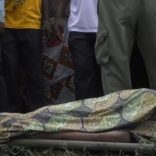
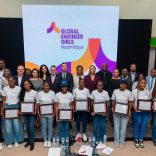
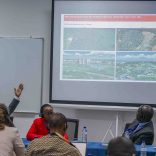

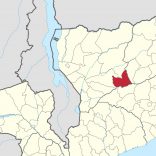
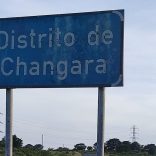




Leave a Reply
Be the First to Comment!
You must be logged in to post a comment.
You must be logged in to post a comment.